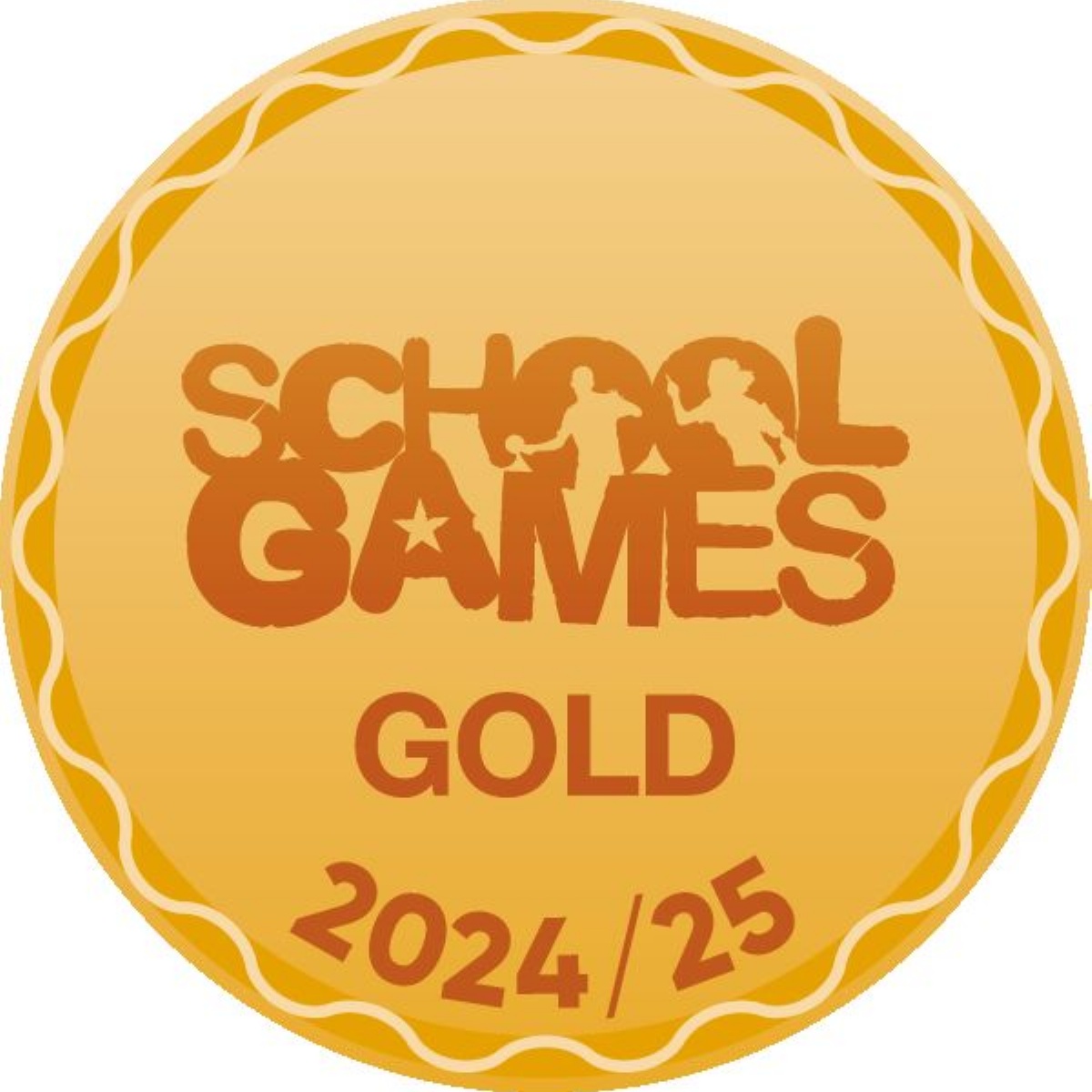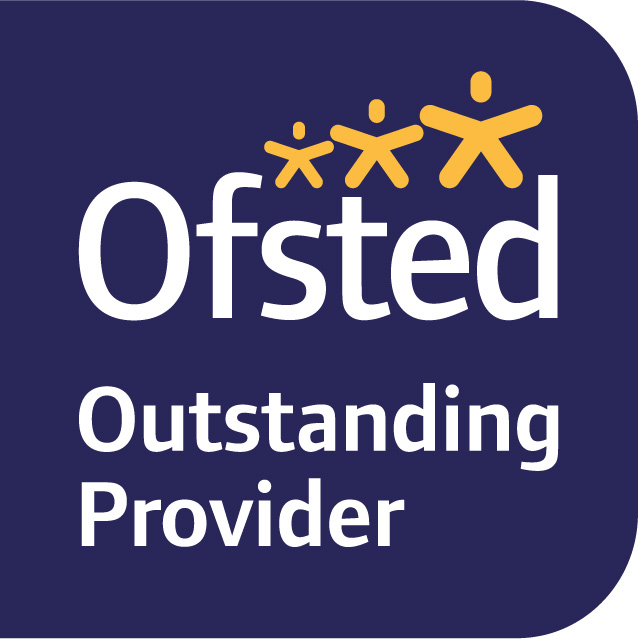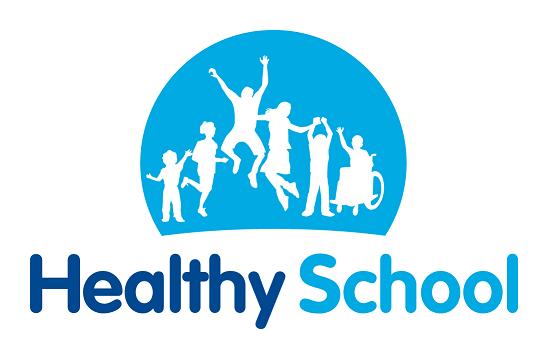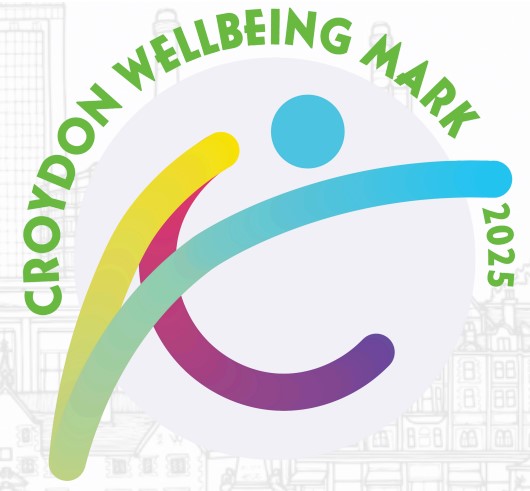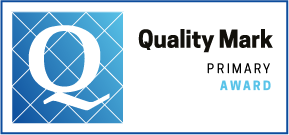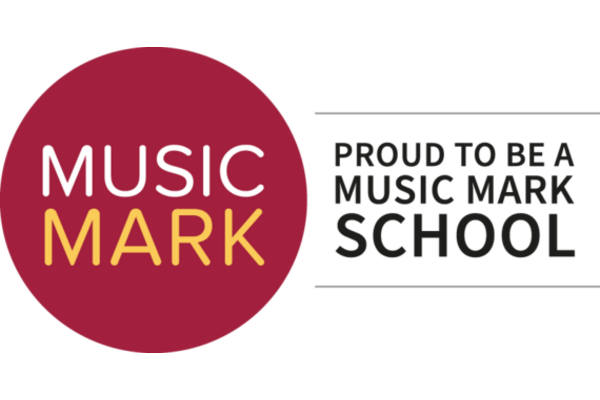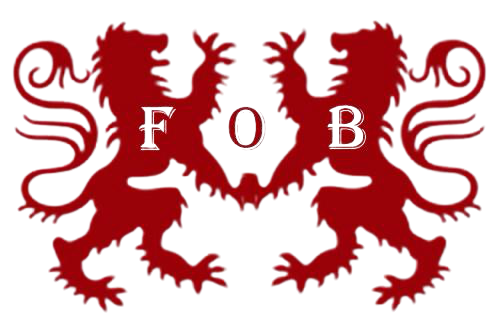Phonics and Early Reading
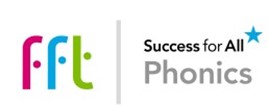
Intent:
At Beaumont we use FFT Success for All programmes to support our mastery approach to early reading. We are committed to providing the very best provision so that all children master the skills to become confident, fluent readers and writers. We know that high-quality phonics teaching improves literacy levels and gives all children a solid base on which to build and develop their reading habits so that they read widely and often for information and pleasure. We have a strong emphasis on the development of language and give specific attention to developing vocabulary and speaking and listening skills.
Through daily, systematic and consistent high-quality phonics teaching, children learn to blend and segment words for reading and spelling. To allow our children to develop a strong phonological awareness and effective blending, decoding, fluency and comprehension skills, we have chosen to use a DfE-validated systematic synthetic phonics programme (SSP) called FFT Success for All Phonics from FFT. The programme supports our intentions to teach children to read and write independently so that they are able to access a broad and exciting curriculum and flourish as learners throughout their time at our school.
The phonics programme is part of a comprehensive package of programmes which we use to support a mastery approach to phonics and early reading. The FFT Success for All programmes (Phonics, Shared Reader, Tutoring with the Lightning Squad and Reading Assessment Programme (RAP) complement each other in highly effective ways and provide the tools that all our practitioners need to develop competent, fluent early readers, preparing the way for passionate and successful lifelong reading.
We have strong fidelity to the programmes we have selected because we ensure that training is of the highest quality. All staff have access to regular training and share best practice in school and with others. We are well supported by the team at FFT Success for All who offer responsive and up-to-date information and professional development. As a result, our staff are well trained and proficient in the teaching of phonics and early reading.
Co-operative Learning strategies are embedded within the programmes and provide a platform where mastery teaching can take place. They support the generation of a ‘collaborative, thinking classroom’ where children are responsible and successful learners. Children are given opportunities to work in partnerships, use peer teaching and to support one another. They are encouraged to build resilience in their learning and become trained in the expectations of successful Co-operative Learning. Suggestions are made within The Reading Framework for effective pair work and these are part of the Co-operative Learning pedagogy within FFT Success for All programmes.Parent and Carer Guided to FFT Phonics
Implementation:
At Beaumont we implement FFT Success for All Phonics which provides 68 fully decodable reading books (Shared Readers), daily phonics and reading lesson plans, assessment tools, picture cards, mnemonics for letter formation and all other teaching resources needed to support the effective teaching of phonics from EYFS to the end of Year 1. The programme is designed for daily use from the beginning of Reception, enabling children to make a smooth transition from Reception to Key Stage 1. The daily lesson plans cover all the main Grapheme–Phoneme Correspondences (GPCs) and Common Exception Words (CEWs) to provide children with the phonic knowledge and skills required for success in the Year 1 Phonics Screening Check.
We also use FFT Success for All Phonics to teach children who are new to English or are learning phonics for the first time and we implement the phonics programme alongside FFT’s reading tutoring programme (Tutoring with the Lightning Squad) which can be used by schools to provide catch-up support for children where necessary and the Reading Assessment Programme (RAP) which we use as an effective diagnostic tool. The programmes are fully aligned to the revised Early Years Foundation Stage curriculum and National Curriculum programmes of study for reading in Key Stage 1.
Our aim is for children to become fluent, confident readers by the end of Key Stage 1.
Impact:
We monitor impact through the assessment data we obtain and through monitoring of practice. Analysis of data informs practice and supports ongoing developments in early reading so that all children master the skills, knowledge and understanding required to be confident and fluent readers. Lesson observations, shared pedagogical dialogue, shared best practice and an ongoing commitment to achieve the very best for all our pupils make for impactful practice. We set high expectations and measure the impact against these expectations. Our findings are built into action planning and are part of our continual cycle of improvement. Whole School Commitment We pledge our commitment to continued development with phonics and early reading and look to research and new initiatives to expand and enhance the provision we offer.
Early Reading at Beaumont
Intent:
At Beaumont we are committed to providing great reading provision and developing pupils’ proficiency in, and love of, reading. We ensure that all children have the skills, knowledge and understanding to become confident and enthusiastic readers and writers. We believe that high-quality phonics teaching improves literacy levels and gives all children a solid base on which to build and develop their reading habits so that they read widely and often for reading and information.
Through daily, systematic and consistent high-quality phonics teaching, children learn to blend and segment words for reading and spelling. To allow our children to develop a strong phonic awareness and effective blending, decoding and comprehension skills, we have chosen to use a DfE Validated synthetic phonics programme (SSP) called FFT Success for All Phonics from FFT.
The programme supports our intentions to teach children to read and write independently so that they are able to access a broad and exciting curriculum and flourish as learners throughout their time at our school.
Implementation:
We maintain fidelity in the implementation of our phonics teaching by using FFT Success for All Phonics which allows the children to learn phonics through a highly structured programme of daily lessons across FS/KS1, using a variety of fun activities in multi-sensory and systematic ways.
Each session gives an opportunity for children to revisit their previous experience, be taught new skills, practice together and apply what they have learned and celebrate their achievements. It follows the teaching principles of:
- Revisit and Review
- Teach and Model
- Practise and Apply
- Celebrate Achievement and Assess
Time is incorporated to allow for consolidation so that children can secure their skills, knowledge and understanding.
The programme is underpinned by a set of seven core principles designed to support all teachers and children.
Core principles:
- Systematic Progression
- Regular Assessment
- Early Intervention
- Multisensory Approach
- Co-operative Learning
- Application of Skills
- Reduced Workload and Collegiate Approach
Reading materials have been designed to support rapid and sustained progress and are well-matched to the scope and sequence of the programme. A comprehensive set of 68 decodable shared readers is provided by the programme and additional materials that a school already has that match the sequence can be used to supplement early reading.
The FFT Success for All Phonics Scope and Sequence is set out clearly and provides detailed guidance and support for teachers to plan and deliver high quality lessons. A synthetic approach to teaching ‘pure sounds’ and the skills of segmenting and blending are incorporated into the teaching and learning materials. Lessons are planned so that children build on their skills sequentially and systematically and can be adapted and modified to meet the needs of the children accordingly.
Training and support are offered through FFT Success for All Phonics and FFT and our school support staff through this training offer. All staff are given the skills, knowledge and understanding to deliver high- quality phonics lessons and to achieve strong and sustained pupil outcomes in phonics and early reading and writing.
Impact:
Through the consistent, systematic and daily teaching of the FFT Success for All Phonics programme, our aim is for children to become fluent, confident readers by the end of Key Stage One.
Children are regularly assessed informally by the teacher within the lessons and over a sequence of lessons to ensure they keep up. If children need additional support, they are provided with keep-up sessions to ensure they stay on track with the rest of the class. More formal assessments are completed every half term using FFT’s Reading Assessment Programme (RAP) which covers all KS1 assessments including phonics skills, decoding, reading fluency, comprehension and the Year 1 phonics screening check.
Children who require further additional support (catch-up) are identified using a range of assessment information and will be supported through small group or one-to-one interventions such as Tutoring with The Lightning Squad, a reading tutoring programme where pupils work in small groups with a tutor to improve their reading skills. The tutoring is a blended approach with face-to-face tutoring supported by an online tutoring platform. The tutoring activities are designed and structured to improve reading skills, fluency, comprehension, spelling and phonics.
At the end of Year 1 children are statutorily assessed using the Phonics Screening Check. This screening check confirms whether the child has met the appropriate phonics standard and can be used diagnostically to identify areas that need further attention going forward. Children who do not meet the required standard will be supported through catch-up sessions so that they are ready to retake the screening at the end of Year 2.
Through the FFT Success for All Phonics programme and our commitment to phonics teaching, children will be equipped with the skills, knowledge and understanding to decode unfamiliar words using a range of strategies. They will have a firm phonic base to support them on their literacy journey through school. They will develop their fluency and comprehension skills, take pleasure in exploring the rich literary world around them, acquire a love of reading and flourish as readers.
Understanding the book is vital and as part of learning to read, it is important that your child develops their comprehension skills. As you read together, talk about what is happening in the book, what might happen next, and anything that has puzzled them. Encourage your child to re-tell the main parts of the story, using the pictures as a prompt if they need it. When your child finishes a book, ask them whether they liked it or not and encourage them to explain why.
If you have any questions, then please get in touch.
Book Corners
At Beaumont, we have tried hard at creating comfortable and relaxing places for the children to read their favourite books. We have a full range of age expected reading material for each class as well as DEAR (Drop Everything and Read) books. Please have a look below and look at some of these exciting spaces in the classrooms.
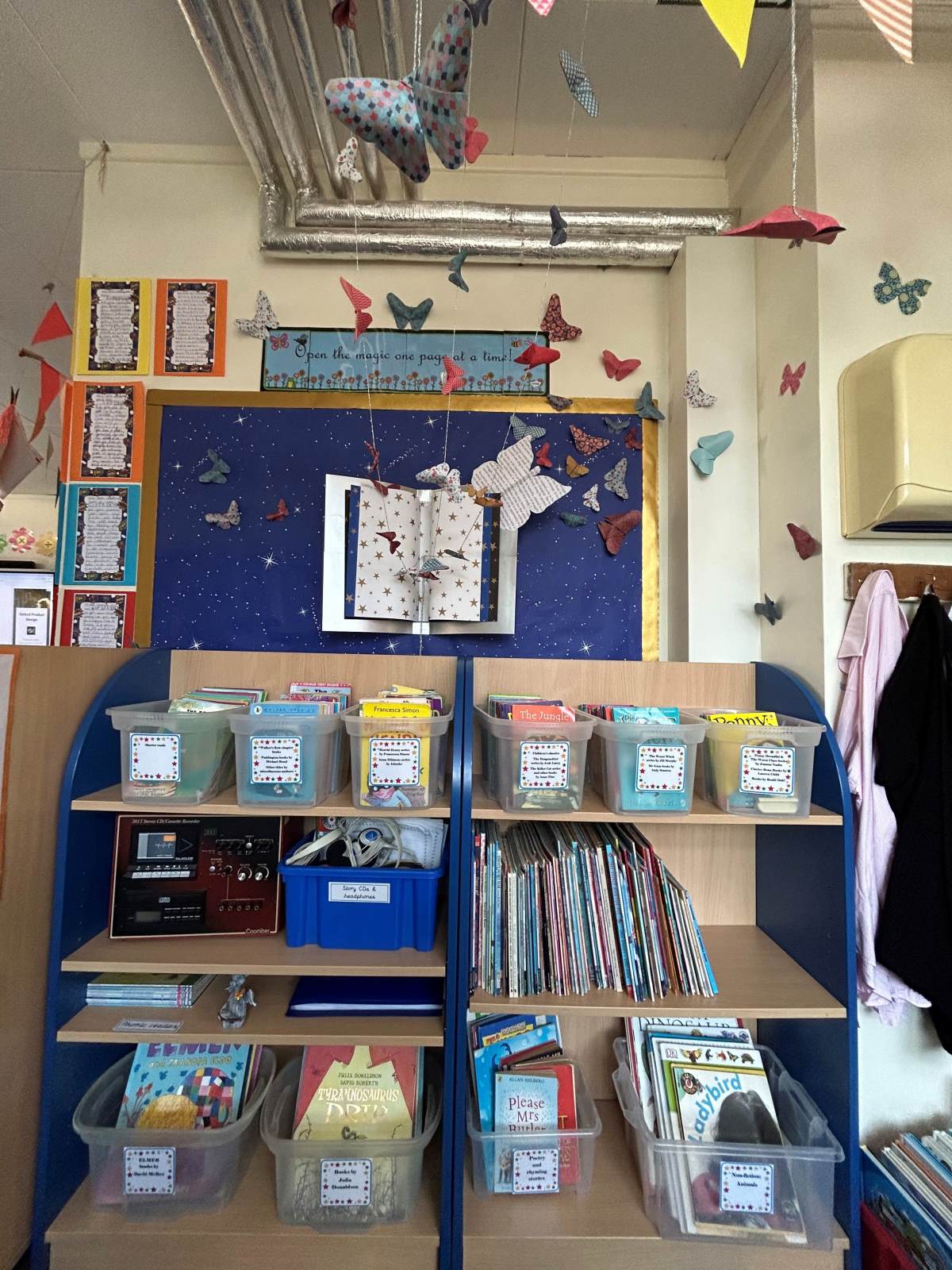 |
 |
 |
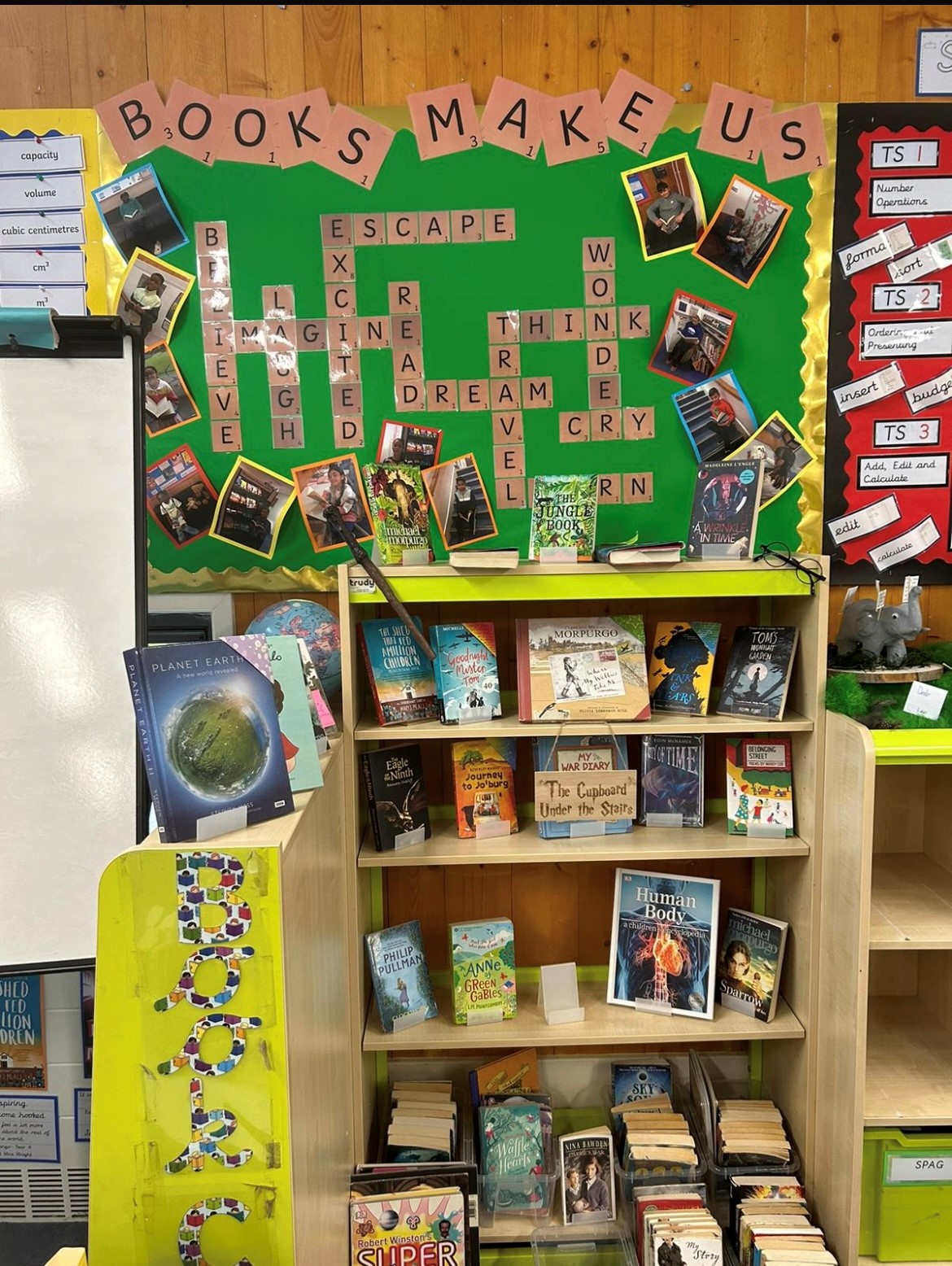 |
Griffin Wood - our new library
Our new library - Griffin Wood - was opened on Monday 9th September 2024. We were very lucky that Mrs Shelley Davies, who is the Director of Croydon Education, opened up this new space in our school. The children, who raised the most money as well as read the most, accompanied our visitor along with some members of our board of governors. Mrs Ashton also came and represented FOBS (Friends of Beaumont) who very kindly donated money towards the new library.
Throughout the morning, each class came to visit and spend some time looking at books. I have attached some photos for you all to enjoy. Hopefully, the children will come home talking about how wonderful this library is.
Phonics Documents
Parent and Carer Guide FFT Phonics
Early Reading and Phonics Policy
English Writing
Intent:
Our aim is to deliver learning that meets the requirements of the National Curriculum in a way that is appropriate to the needs and interests of all pupils and which challenges them to fulfil their potential.
- To provide experiences to children in the Early Years Foundation Stage relating to writing that meet the objectives laid out in the Early Learning Goals and from the March 2021 EYFS Framework.
- To provide simulating writing experiences for children.
- To develop a positive attitude to writing.
- To foster a love and curiosity of writing.
- To develop awareness of the importance/influence of writing in everyday life.
- To teach and develop writing skills.
- To teach the different writing genres.
- To use technology for word processing and as a research tool to enhance the writing experience.
- Enable children to develop wider skills relating to writing, including co-operation, teamwork, speaking and listening, drama and independent working.
- Develop a love for different authors –using their style to inform/ improve their own writing.
- Use writing to develop their cross-curricular skills – especially in maths explanation, science reporting/ research, history, geography, PSHE and RE.
Implementation:
Teaching and Learning
- To plan and deliver writing experiences outlined in the Primary National Curriculum, including all the relevant learning objectives.
- Use a range of exciting “HOOKS” to stimulate the children.
- Allow for opportunities to develop own knowledge of genres through reading excellent texts, exploratory play, drama, Talk for Writing, modelled and guided work.
- Provide rich, stimulating vocabulary choices through use of dictionaries, thesauruses, displays, word banks, knowledge organisers, magpie books and reading stimulus materials.
- Use a range of resources, outdoor spaces and information technology to stimulate and support learning.
- For the purpose and audience of their writing to be considered as an integral part of the children’s learning and planning process.
Inclusion and Wider Engagement
- All learning and activities planned to be accessible to all learners, including children with SEND, and other varying abilities.
- Additional enrichment provided through: theme days/weeks within school, using outside providers – e.g. authors/drama groups/ librarians - delivering clubs/workshops/assemblies in school, school trips, after school/lunchtime clubs, access to regional or national competitions, writing celebrated through display and other rewards. Enrichment is made accessible to all ages and abilities.
Impact:
Pupil Assessment and Attainment
- During lessons, children’s learning is measured using observations, key questioning, discussion, one to one conferencing, self and peer marking and annotation of children’s work. This is used to support the planning and development of teaching and learning in the short term.
- Moderation each half term across key stages to show progression of writing skills
English Writing Subject Area and School Development
- Subject leaders measure impact of the implementation through monitoring activities, including; learning walks, questionnaires to staff and pupils, pupil voice, looking at evidence of pupils’ work, lesson visits, moderation, analysis of teacher’s assessments and any other relevant evidence.
- Subject leader evaluates the impact and plans for future development of the subject for pupils and staff.
- Subject leader creates an action plan, looking to develop new opportunities, refine current practice, plan CPD for staff and feed into the School Development Plan (where appropriate).
Overall Intended Impact
- Writing is engaging and enjoyable for pupils; they develop a love of writing as a discrete subject, to unlock/enrich other subject areas and as a key life skill to become creative, successful adults.
- Teachers have the confidence and knowledge to deliver a well-planned and interesting curriculum to pupils using a range of resources and approaches.
- Pupils make accelerated progress in their acquisition of skills, knowledge and understanding.
- Children access a range of different learning opportunities, both in and out of the classroom.
- Staff evaluate the impact of their teaching and learning and develop their practice to suit the learners in their classroom.
- Subject leader can identify strengths and areas for development of the subject and act upon it in the interest of the school.
Writing Documents
A3 Writing Opportunities for each class
Year 6Writing Progression of Skills and Knowledge
Grammar and Punctuation Progression of Skills and Knowledge
Reading Documents
Which reading skills am I using?Great Books Guide 2023


